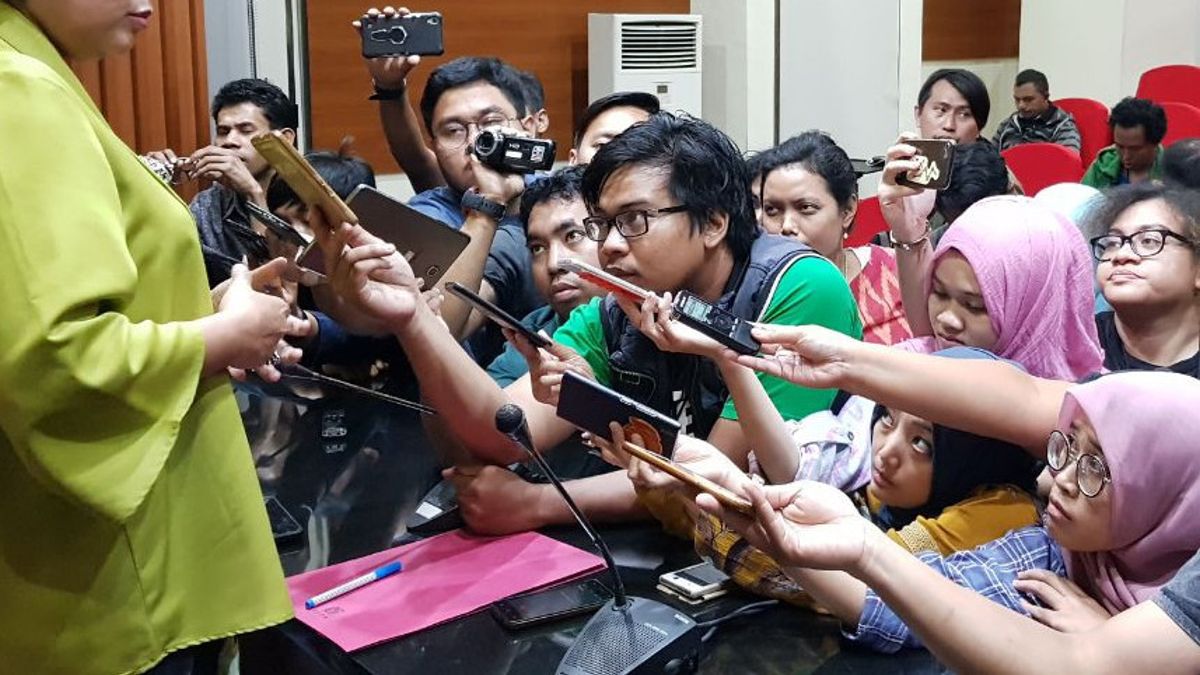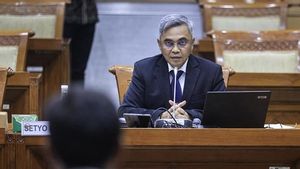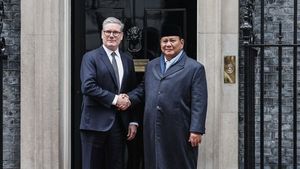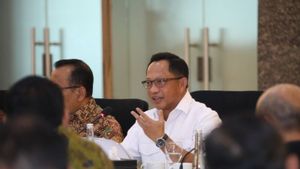JAKARTA - This story happened some time ago. About the spokesman for President Joko Widodo Fadjroel Rachman who suddenly said he missed journalists. Netizen responded bitterly to Fadjroel's expression. The relationship between officials and journalists has always been interesting. Especially today. There is a lot of confusion, especially with regard to public responsibility and press freedom.
What happened to Fadjroel might be a picture as well as a lesson. So, the expression of longing was uploaded by Fadjroel on his Instagram account, @fadjroelrachman, along with a photo that showed Fadjroel in a crowd of journalists.
In essence, Fadjroel admitted that he missed the days before the COVID-19 pandemic when he could chat with journalists. Unfortunately, the emotional photo caption provoked a warm response. The comment column on Fadjroel's upload was enlivened by many objections and protests against Fadjroel's attitude as Jokowi's spokesman.
"Our chat on WhatsApp, never he replied to ... I think because our time difference is 12 hours, I know that in the country it experiences the same thing", wrote the account @mazrieva.
"I WhatsApp asked for confirmation from the palace representatives not to be answered. When I tagged the news results via Twitter instead my account was blocked. What a mess!" @vannyelrahman account.
Others, the account @m.guruhnuary wrote: Bang, if you want to make small talk, please follow the facts. Be humble with a journalist, Om Deddy podcast you attend immediately. But with real journalists, why ignore it.
There are no accounts that identify themselves as journalists. What is clear, their protests have the same narrative, that Fadjroel is not good enough in terms of replying to messages, answering questions, or various other matters regarding information disclosure.
Relations between officials and journalists
A former spokesman for the Corruption Eradication Commission (KPK) Febri Diansyah gave a view. According to Febri, state institutions as institutions or all of their officials individually are required to have full awareness that they are working for the public. So their responsibility is to the public, including the issue of information disclosure.
"Because what is being done uses public money, public money or on the basis of the authority granted by law", said Febri, contacted by VOI, Tuesday, February 9.
And the position of journalists in this accountability realization chain, according to Febri, is very important. The ideal press activity is one that is light. So, "... the role of journalists in the middle positions becomes very important. Journalists' roles are not only to transmit information from public officials but also to monitor whether the public officials are working properly or not".
"This is not just a question of whether or not you can answer. But it is more than that. Relationships between journalists and public officials should be read as a channel of accountability. That's the main point".
Febri added, however, that the 2021 National Press Day should be momentum to raise awareness. Regarding the relationship between state officials and the public, as well as the role of the press as an intermediary. Don't just play games, said Febri.
"We are mostly a gimmick. On the day the press makes releases, make posters, right? Every big day makes releases, makes posters. Even though what is done in substance is not necessarily like that. It should be yes. Indeed such a statement is necessary. followed by the implementation. "
[/ read_more]
Criminalizing journalists
This point is important to highlight. Safenet's data shows the high rate of criminalization against journalists. And those who carry out this criminalization are dominated by public officials, agencies, and security forces.
Apart from the legal slice that journalistic work is protected by Law Number 40 of 1999 concerning the Press, the fact that there is an unharmonious relationship between public officials and agencies and security forces is inevitable. Indeed, this cannot be beaten flat.
What is clear, with Law Number 19 of 2016 in conjunction with Law Number 11 of 2008 concerning Electronic Information and Transactions (UU ITE), many state officials have tried to imprison many journalists.
Safenet has widely recorded 324 legal cases related to the ITE Law as an instrument. All of these figures were recorded in the period 2016 to October 2020. Safenet's data noted that most of the victims of the ITE Law were journalists. In addition, activists, residents, artists, and education personnel are also the most vulnerable groups.
All of this data was compiled in the period 2008 to 2019. And it is this part that needs to be underlined: the parties that most cases have litigated others with the ITE Law are public officials, agencies, and security forces. The percentage reaches 38 percent.
Specifically, Article 27 is the most dangerous. This article which regulates defamation cases is the most widely used tool in bringing someone against the ITE Law. After Article 27, another article that is widely used in Article 28 which regulates hate speech.
Other BERNAS
[/ read_more]
The English, Chinese, Japanese, Arabic, and French versions are automatically generated by the AI. So there may still be inaccuracies in translating, please always see Indonesian as our main language. (system supported by DigitalSiber.id)










